Can technology improve your sleep? 4 gadgets put to the test
We looked at a range of gadgets to track and improve our sleep.
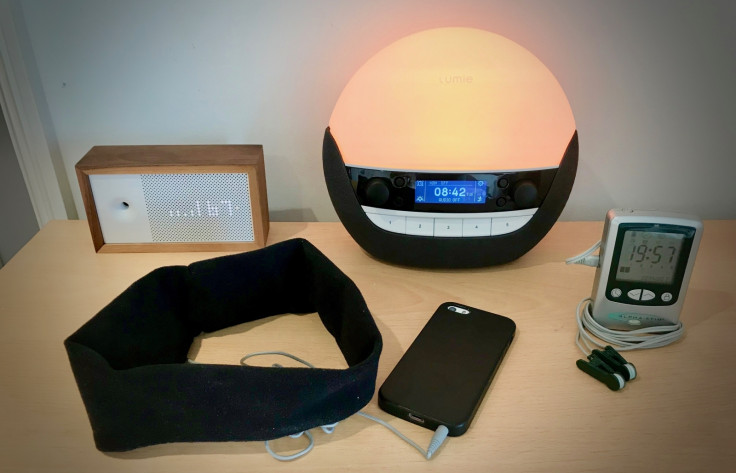
Using an iPhone application called Sleep Better, we have been tracking our sleep for almost a year. On and off, we have data from 200-plus nights, each broken down to show how many minutes of light and deep sleep we achieve.
It's reassuring to know that, on average over 200 nights, we have slept for 86% of our target eight hours. This includes weekdays, weekends, holidays and nights spent on planes and sofas.
But can we do better? Despite the stats looking good, can we shift the groggy feeling we have most mornings; the reluctance to get out of bed no matter what, and the post-lunch tiredness bringing our afternoons to a halt? We have assembled four very different gadgets to try and find out.
Awair - £180
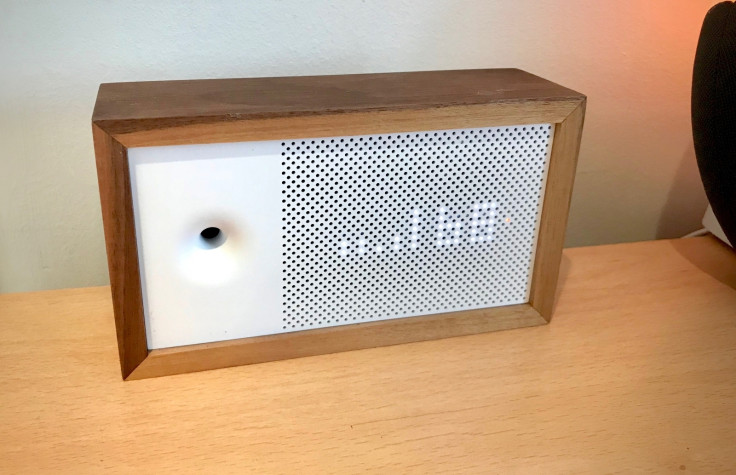
First is the Awair, an air quality monitor that makes you aware of the air - geddit? With a lovely wooden finish, simple setup and easy-to-use iPhone app, the Awair gets the basics absolutely right. A dot matrix display presents a score out of 100, broken down into five categories: temperature, humidity, CO<sub>2, chemicals and dust.
If any of these raise suddenly, a notification is displayed on the Awair and the app gives you advice on how to lower the readings and increase your air score.
When first setting up Awair, the app asks where the device will be located and what you want to get out of it. So we chose bedroom and said we wanted to sleep better. The Awair then monitors and alerts accordingly.
Awair's advice starts off as being quite useful, but soon gets repetitive. Every time we spray deodorant, dust and chemical levels rise and the app suggests we open a window. Another criticism is a slight noise emitted by the Awair. It's only noticeable in very quiet rooms, but could be an issue if you place it on your bedside table.
Otherwise, the Awair is a lovely looking (albeit expensive) device that focuses on one task and performs it well. It might not be life-changing to know your room is a bit dusty, but if you're sleeping badly or feeling unwell each morning, the Awair's findings could be a good place to start.
AcousticSheep SleepPhones - £34.99
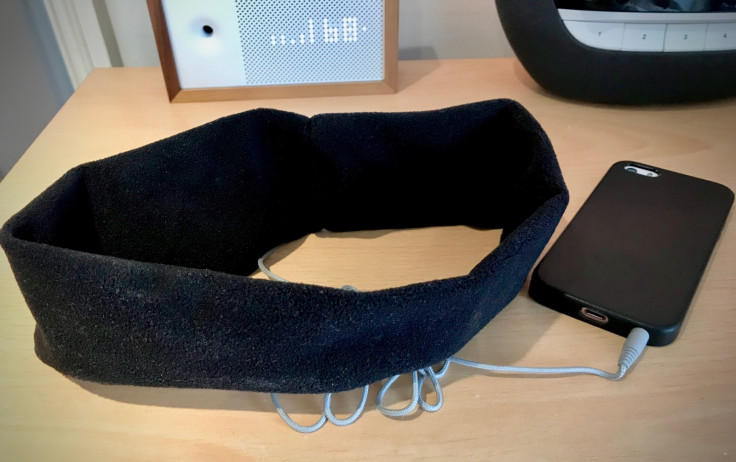
We were already a fan of listening to music to help us feel sleepy, but drifting off with regular earphones lodged into our ears is less than ideal.
That's where the SleepPhones come in, which embed a pair of low-profile headphones into a soft headband. The SleepPhones are very comfortable to wear and don't feel like headphones at all, meaning you can lie in any position and not worry about pain or discomfort.
There is no active noise-cancelling, so you can still hear some outside noises, but if you live next to a busy road or below a flight path you should notice a little more isolation than before. An airplane cabin will still be noisy – this is where noise-cancelers truly come into their own – but for your bedroom the SleepPhones do the job.
As for what to listen to, there is no shortage or articles with advice on white noise, pink noise, whalesong, rain, crickets and everything in-between.
Our only concern is the headphone cable, which could become tangled up in wearers who roll over a lot in their sleep. A wireless Bluetooth version is available for £70.
Lumie Bodyclock Luxe 700 - £170
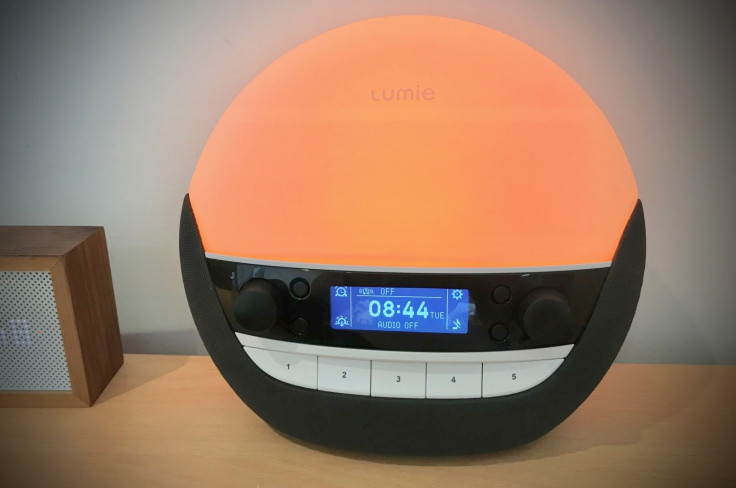
Lumie is a bedside lamp that simulates sunrise and sunset, easing you into and out of sleep more gradually than the flick of a light switch and the blare of an alarm. As well as glowing gradually brighter each morning, the lamp shifts from a deep red to brilliant white, further mimicking a sunrise.
Naturally, you can set your own sunrise to any time you like and hook up an iPhone or other media device over USB or Bluetooth to play music; over 20 wake-up sounds are also on tap. However, we found the light alone was enough to wake us up on time. As a backup we set the Sleep Better app to wake up when it detected movement within a 20-minute window. The result: we are woken gradually by the Lumie-rise, then, when we move, the Sleep Better alarm sounds to stop us drifting back to sleep.
The Lumie can also be configured to 'set' at night, slowly dimming through yellow, orange and red before switching off. Sunrises and sunsets can be made to last for between 15 and 90 minutes.
Although the Lumie's work was initially blighted by us testing it through the summer and in a bedroom impossible to make truly dark, at the time of publication it had come into its own. The light really does wake us up each morning – and always a few minutes before our audible backup alarm, at that.
Alpha-Stim AID - £450
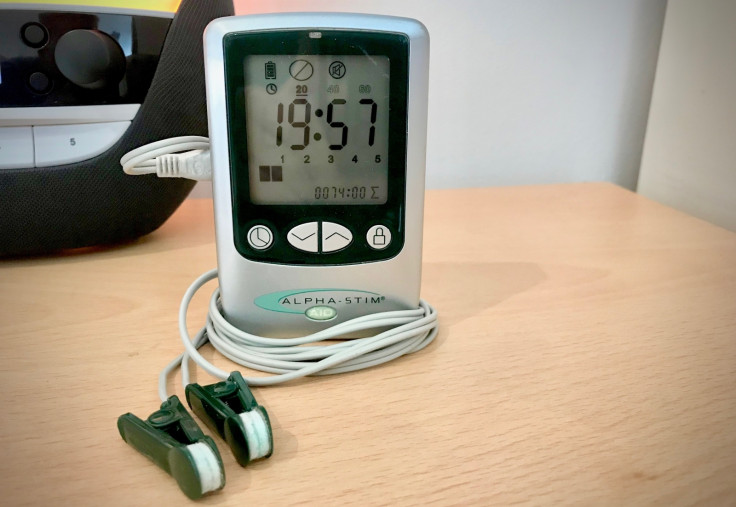
Here's a left-field gadget if ever there was one, and to be honest the Alpha-Stim is intended more as a medical device than a consumer gadget. But we were offered the chance to try it out and, curious as ever for new tech, we gave it a whirl.
Currently being trialled by the NHS, the phone-sized Alpha-Stim stimulates alpha waves in the brain and limit sleep-affecting delta waves. The device clips to your ear lobes and produces microcurrents of electricity.
A boost in naturally-created alpha waves is claimed to reduce depression and anxiety, while too many delta waves during the day harms sleep at night. The makers of the device claim an 85% success rate in improving the sleep of insomniacs by limiting their delta waves.
We don't personally suffer from depression, anxiety or insomnia, but still felt like using the device for 20 minutes each evening helped us feel more relaxed before going to sleep. Outside of medical trials, the device is being aimed at high-flyers with stressful jobs, and for that we can see it working. Stressful days felt like they had had their sharp edges sanded off and we were less prone to losing our temper or feeling nervous about the following 24 hours.
The £450 price tag is steep for anyone looking at this as just another gadget, but for suffers of depression, anxiety and insomnia the company's research and customer testimonials are hard to ignore.
Conclusion
Although we were already sleeping for much of the night before this experiment, after using the gadgets for a few weeks we felt our sleep quality had improved, even if we were unable to get our Sleep Better score up to 90%.
That being said, some sleep experts warn against using apps to track sleep, and question whether a smartphone can really tell the difference between light and deep sleep. Christabel Majendie, a sleep therapist from organic mattress company Naturalmat, told IBTimes UK: "While sleep-tracking gadgets give you a rough indication of how long you sleep which is useful for some people, over monitoring your sleep may lead to sleep-related anxiety. In addition although many of these devices claim to be able to distinguish deep sleep from light sleep, there is very little evidence to support this."
Even without consulting the app, we felt we were sleeping deeper for longer, fell asleep more quickly, were less stressed, and less prone to waking up mid-way through the night. In fact, by the end of this experiment we left our phone downstairs at night – unheard of for a millennial – and sleep for 7.5 hours straight with no interruptions until the Lumie light woke us up gradually. No audible backup required.
Rising at 6am is still unpleasant most mornings, but replacing a sleep-shattering alarm blare with the Lumie's rising sun simulation has made the early starts far more bearable.
Of all the technology here, we found the Lumie made the most obvious difference. While the Awair is undeniably attractive, it is quite expensive and provides a limited amount of use – once you know the quality of your air, that's about it.
The SleepPhones are comfortable, low-tech and do exactly what you expect. If you already know certain noises help you sleep, then they would be a great investment – just stretch to the wireless version if you can.
Finally, the Alpha-Stim AID. We were aware of the device doing something because, as we had been warned, turning it up too high can result in feeling a bit dizzy. Put back to level three of five and used for 20 minutes daily it made us feel more relaxed and generally happier, which even for someone without the clinical need for such a device, is hard to put a price on.
© Copyright IBTimes 2025. All rights reserved.






















